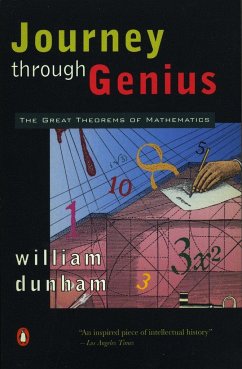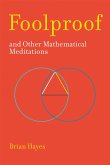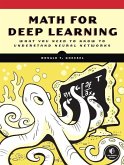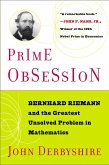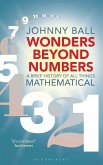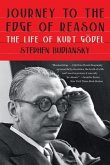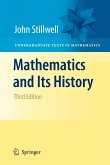Like masterpieces of art, music, and literature, great mathematical theorems are creative milestones, works of genius destined to last forever. Now William Dunham gives them the attention they deserve.
Dunham places each theorem within its historical context and explores the very human and often turbulent life of the creator from Archimedes, the absentminded theoretician whose absorption in his work often precluded eating or bathing, to Gerolamo Cardano, the sixteenth-century mathematician whose accomplishments flourished despite a bizarre array of misadventures, to the paranoid genius of modern times, Georg Cantor. He also provides step-by-step proofs for the theorems, each easily accessible to readers with no more than a knowledge of high school mathematics. A rare combination of the historical, biographical, and mathematical, Journey Through Genius is a fascinating introduction to a neglected field of human creativity.
It is mathematics presented as a series of works of art; a fascinating lingering over individual examples of ingenuity and insight. It is mathematics by lightning flash. Isaac Asimov
Hinweis: Dieser Artikel kann nur an eine deutsche Lieferadresse ausgeliefert werden.
Dunham places each theorem within its historical context and explores the very human and often turbulent life of the creator from Archimedes, the absentminded theoretician whose absorption in his work often precluded eating or bathing, to Gerolamo Cardano, the sixteenth-century mathematician whose accomplishments flourished despite a bizarre array of misadventures, to the paranoid genius of modern times, Georg Cantor. He also provides step-by-step proofs for the theorems, each easily accessible to readers with no more than a knowledge of high school mathematics. A rare combination of the historical, biographical, and mathematical, Journey Through Genius is a fascinating introduction to a neglected field of human creativity.
It is mathematics presented as a series of works of art; a fascinating lingering over individual examples of ingenuity and insight. It is mathematics by lightning flash. Isaac Asimov
Hinweis: Dieser Artikel kann nur an eine deutsche Lieferadresse ausgeliefert werden.

